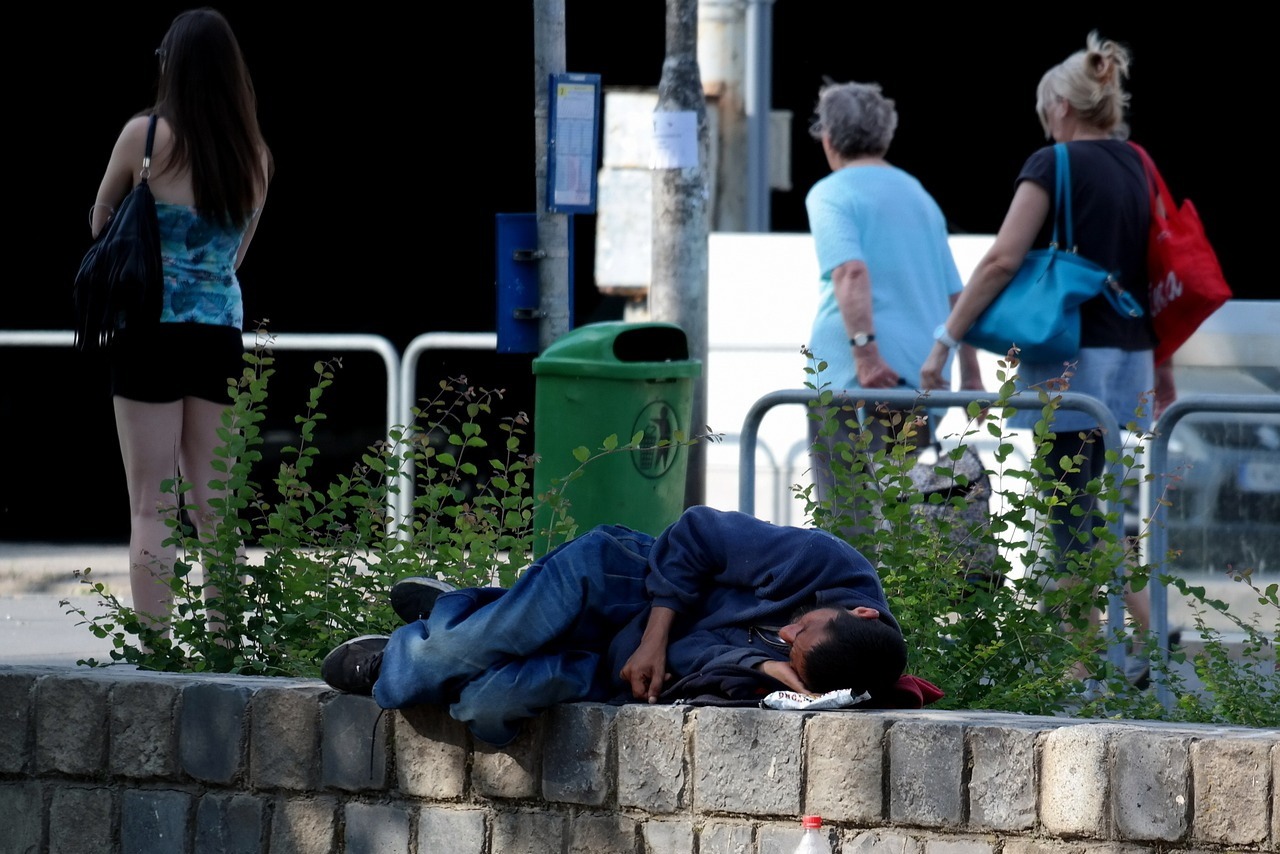Amos 6: 1a, 4-7; Psalm 146; 1 Timothy 6: 11-16 (RM) or 6-19 (RCL); Luke 16: 19-31
In 2009 I accepted a longstanding invitation to visit the St. Ephrem Ecumenical Research Institute in Kottayam, India. My flight, however, landed in New Delhi and the southbound connecting flight only departed the following day. Sleeping overnight in an airport – Pearson, Gatwick – has never worked well for me. So I used points and booked a room at the Hyatt Regency not far from the airport.
It seemed odd that the hotel gave me very explicit instructions – do not take a taxi to the hotel, we will send a car and driver to pick you up. On the way, the driver gave me an entire security briefing. At the hotel I was escorted to my room, told that the tap water was potable (in India?), that yes the outdoor pool was open (and guarded), and that a driver would take me back to the airport the following day.
And then I looked out the high-rise window.
There were people camped out all along the street side below. No, not camped out – they lived there. Slept and ate there, under thin plastic sheets. Small children were running around. And probably dogs – don’t remember.
It was a perfect modern casting of the parable in today’s Gospel.
And I was the rich person literally looking down on desperately poor people.
Scripture scholars agree that Luke did not invent this story – there are close parallels in North African folk tales, and apparently this one travelled via Egypt to Luke’s church community. The sharp contrasts between wealth and misery were common to this story genre. The kicker here is what’s been called the Great Reversal – the rich shall fall and the poor be raised up, a theme Luke had already proclaimed as characteristic of the reign of God in Mary’s Canticle and in Zechariah’s Canticle. It fits the context here because in verse 14 the Pharisees had ridiculed Jesus over his attitude toward money. For them prosperity was a sign of God’s favour and entirely deserved. Here, Jesus is upbraiding the Pharisees for their self-serving attitudes.
And self-serving marks the behaviour of the rich man in this story. In life he was self-indulgent (the first reading from Amos sets us up to react immediately to his lifestyle), and in death he requests Abraham to send Lazarus to soothe his discomfort in hell. He addresses Abraham as he would a high-ranking official, as if he were used to dealing confidently with important men. Even after death the man sees Lazarus simply as a useful means to an end – first, to make his own situation tolerable, and then to save his brothers from the same fate – not a person of dignity in himself.
(You notice that only male characters feature in this rendition. In death the rich man converts from thinking only of himself, to thinking only of his male relatives. In our time, and theirs, a significant proportion of those who are poor are women and children.)
Interestingly, the rich man knew Lazarus by name. The man himself is not named in this account. But, known or not, the rich man seems to have done nothing during his lifetime to ameliorate the miserable conditions under which Lazarus existed, right on his own doorstep.
In previous passages Luke has Jesus urging his hearers to sell all their possessions, but not here, not in so many words. The issue here has more to do with the rich man’s hard-heartedness. Ultimately, an abundance of material goods represents a trust, a resource that can nourish and heal those who suffer. The wealthy man did not cause Lazarus’ poverty and desperation. But he could have done a great deal to, at the very least, relieve Lazarus, and anyone else who was camped out at his gate, of their hunger and distress.
So, “what’s in your wallet?” or more to the point, who’s under your window?
© Susan K. Roll
Susan Roll retired from the Faculty of Theology at Saint Paul University, Ottawa, in 2018, where she served as Director of the Sophia Research Centre. Her research and publications are centred in the fields of liturgy, sacraments, and feminist theology. She holds a Ph.D. from the Catholic University of Leuven (Louvain), Belgium, and has been involved with international academic societies in liturgy and theology, as well as university chaplaincy, Indigenous ministry and church reform projects.





I appreciate the information, and the many layers of nuance you are able to lead us through in scriptural stories such as these.